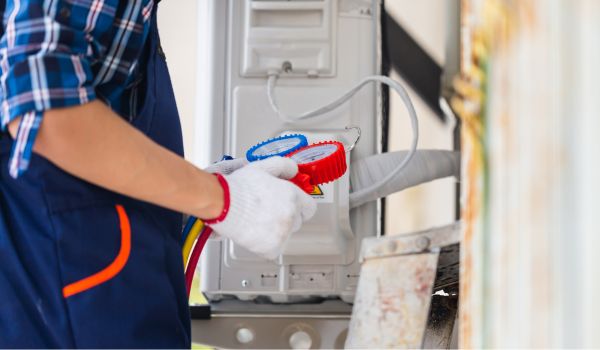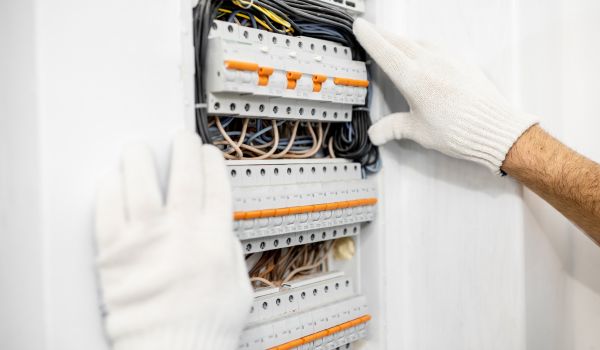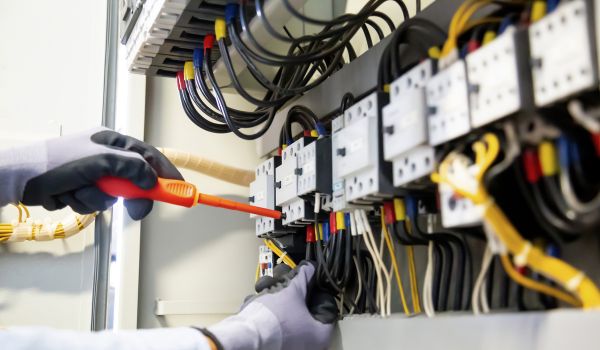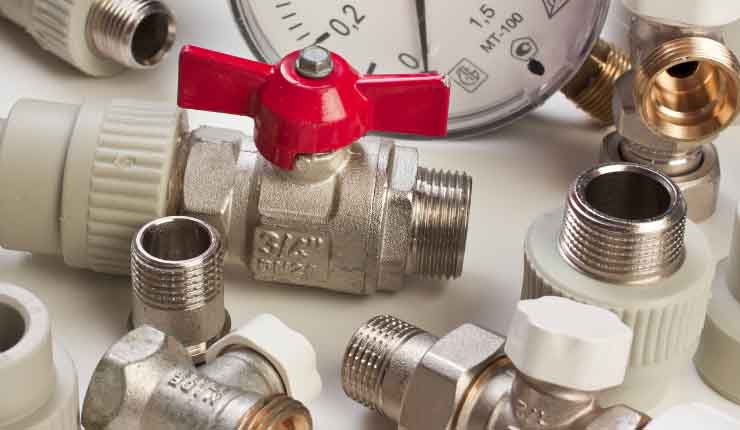Building a new home is an exciting endeavor, and ensuring your home’s electrical system is well-planned and properly executed is crucial for comfort, safety, and functionality. From lighting to outlets, switches, and more, your electrical system powers your daily life.
In this guide, we’ll delve into the key electrical considerations when building a new home to help you make informed decisions.

Planning Your Electrical System
-
Electrical Design
The first step in the process is developing a detailed electrical design for your new home. This design takes into account the placement of outlets, switches, and lighting fixtures. It’s important to consult with a professional electrician or electrical engineer to ensure that your home’s electrical layout adheres to safety and building code standards.
-
Outlet Placement
Consider where you’ll need outlets in each room. Besides the standard outlets, think about specialized ones, like USB outlets for charging devices or floor outlets in areas where extension cords would be impractical. In living rooms and home offices, consider dedicated outlets for entertainment centers or computer setups.
-
Lighting Plan
Lighting is not only functional but also contributes to the ambiance of your home. Plan your lighting carefully. This includes ambient lighting, task lighting, and accent lighting. Consider dimmer switches for flexibility and energy-efficient LED fixtures.

Safety First
-
GFCI Outlets
Ground Fault Circuit Interrupter (GFCI) outlets are a must in areas prone to moisture, like bathrooms, kitchens, and outdoor spaces. These outlets can prevent electrical shock, making them a crucial safety feature. Additionally, GFCI outlets should be used in garages and basements.
-
Arc Fault Circuit Interrupters (AFCI)
AFCI outlets are designed to prevent fires caused by electrical arcing. They’re typically required in bedrooms and other living spaces to enhance electrical safety. AFCI circuit breakers are often used to protect an entire circuit.
Energy Efficiency
-
LED Lighting
Opt for LED lighting throughout your home. LED bulbs are energy-efficient and last longer, saving you money in the long run. They are available in various color temperatures, allowing you to customize your home’s lighting to suit your preferences.
-
Smart Home Integration
Consider incorporating smart home features into your electrical system. This includes smart thermostats, lighting control, and security systems that can be controlled remotely. These technologies enhance your home’s energy efficiency and security.
Electrical Panel
-
Panel Capacity
Ensure your electrical panel has sufficient capacity to handle your home’s electrical needs. It should be sized appropriately to accommodate your appliances, lighting, and other electrical devices. If you plan on installing high-power appliances, like an electric range or hot tub, make sure your panel can support them.
-
Panel Location
Think about the location of your electrical panel. It should be easily accessible but discreetly placed. It’s typically located in a utility room or basement, but you may have design preferences for concealing it.

Future-Proofing
-
Conduit Installation
Consider installing conduits during construction, even if you don’t have immediate plans for certain technologies like home automation. This makes it easier to upgrade your electrical system in the future without major disruptions. Conduits protect your electrical wiring and allow for easy replacement or installation of new cables.
-
Generator Connection
If you live in an area prone to power outages, consider having a generator connection built into your electrical system. This allows for seamless connection to a generator during outages, ensuring you have a reliable source of power when needed.
Electrical Fixtures And Lighting
Budget Considerations
-
Budget Allocation
Your electrical system is a vital component of your home, and quality electrical work is an investment. Allocate an appropriate budget to ensure a safe and reliable electrical system. Cutting corners on electrical work can lead to problems down the line, including safety hazards and costly repairs.
In conclusion, making informed decisions about your home’s electrical system is vital during the construction phase. Ensuring your electrical design is well-planned, incorporating safety features, and considering energy efficiency will lead to a more comfortable and cost-effective living space.
At Sierra Turnkey Contracting, we understand the importance of a well-executed electrical system in your new home. Our team specializes in modern construction and fit-out solutions, including electrical fixtures and lighting in Dubai. Contact us to ensure that your new home’s electrical system in Dubai is in safe and capable hands. We look forward to assisting you in bringing your dream home to life.





Leave A Comment